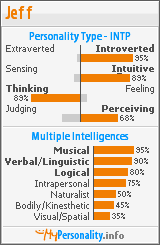Here is the first part of my response to the free-will argument:
Thanks for taking the time to explain your beliefs fully, and I apologize that it has taken me so long to respond.
You started off by saying:
Quote:
| We cannot understand when, where and why the first sin was commited but logically it had to be because of a certain kind of freedom in the will of the bieng that comitted it or else you will have to be like the gnostics that believed that God was both good and evil and you will also have to blot out many scriptures that say that God tempts noone and that God is light and in him there is no darkness. |
1) If God decrees evil, there must be both good and evil in God, and that is gnosticism, and
2) If God decrees evil, there must be both good and evil in God, and that is contradictory to the scriptures.
So your argument here hinges on the point that for God to decree evil, than God necessarily must be evil. In your subsequent response to Objective Truth, you say
Quote:
| Now getting to your belief that God decrees everything to happen i agree with that depending on what kind of decree you are talking about because i believe he decrees it but it is not a determinitive decree. |
a) God decreeing determinatively that evil be is the same as God committing the evil.
b) God cannot commit evil
c) Therefore, God cannot decree determinatively
And furthermore,
d) If God does not decree determinatively, then the only explanation for the existence of evil is that man has free-will and can choose evil
e) God does not decree determinatively
f) Therefore, man has free-will
You will quickly see that this whole line of reasoning will collapse if it can be shown that God decrees in a determinative way without being guilty of the sins he decrees (that is, if a) is disproved. Without a), conclusion c) cannot be reached, and without conclusion c) the conclusion that free-will exists cannot be reached). So I will attempt to do that very thing.
I think you are incorrect to assume that God determining that sin will come to pass is the same as God being the tempter or even the one who commits the sin. The simplest answer to this is that God determines not only the end, but also the means to the end. So, in the case of humans committing sin, you are not incorrect in saying that it was the will of man which brought it about; but that is not a complete answer, for God Himself is the one who decreed that the person would freely (that is, under no compulsion) choose to sin. God did not sin, nor tempt to sin, but He did decree that a human would choose sin, and so in this way He decreed sin. As Genesis 50:20 and Psalm 105:17 say regarding the story of Joseph:
Quote:
As for you, you meant evil against me, but God meant it for good, to bring it about that many people should be kept alive, as they are today.
He had sent a man ahead of them, Joseph, who was sold as a slave. |
Again the word of God says in Proverbs 16:9
Quote:
| The heart of man plans his way, but the Lord establishes his steps. |
Quote:
| I know, O Lord, that the way of man is not in himself, that it is not in man who walks to direct his steps. |
It is on this basis that we can say that God decrees what man will choose beforehand. The purposes of the heart of man and the ability to carry them out are not in man's control, but in God's. A man can will nothing, nor can he accomplish anything outside of the determinative decree of God.
So, in what sense are we "free"? We are free in that we freely choose - we make choices and those choices have real results. Yet, at the same time, our choices could not have been other than what they were, because God had planned the purposes of our hearts and even our very steps, as Proverbs and Jeremiah tell us. Your view is that man's will is determinative, and God's decrees are contingent (that is, they happen only as a result of foreknowledge of what man's will chooses); I think the opposite is true: God's decrees are determinative, and man's will is contingent (that is, man's choices happen only as a result of God's decrees).
In regards to gnosticism, in my (rudimentary) research it seems that gnosticism teaches that all physical matter is evil, and therefore that theone who created physical matteris evil. It is only a very limited segment of gnostics which believed that the Creator-God was both good and evil - for the most part gnosticism teaches that God is evil because he created evil physical matter. Calvinism knows nothing of the Platonic dualism (not to mention the polytheism) on which this conception of god is based, nor of the notion that God is the author of evil because he determined that evil should be, as we have seen.
There is more to say (I have only responded to very first paragraph!), but this is lengthy enough already. I'll post more thoughts later.


0 comments:
Post a Comment